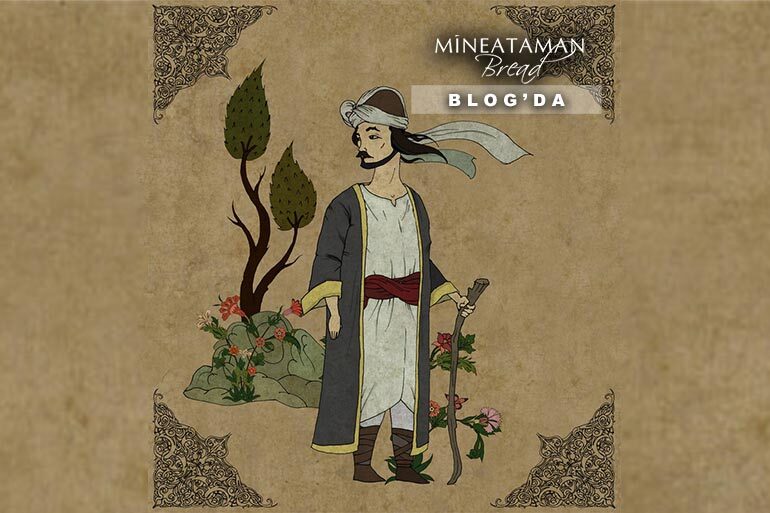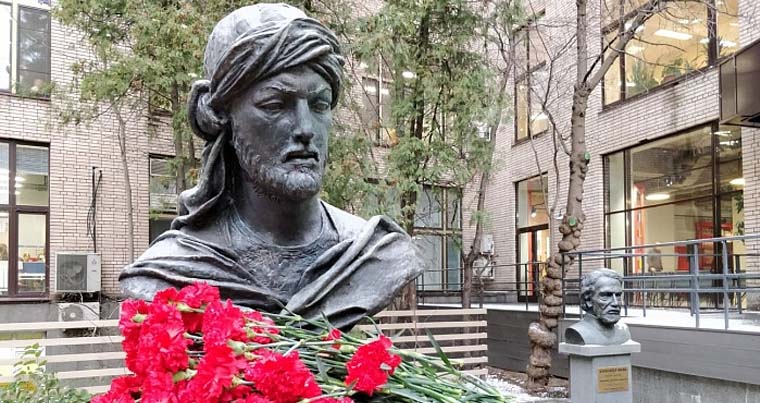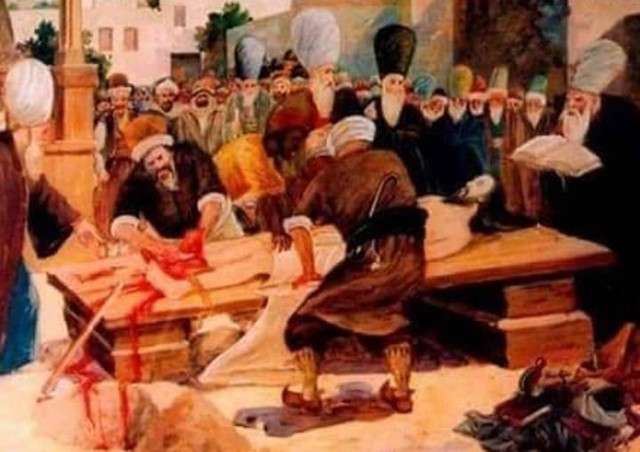Nesimi: The Mystic Poet of Azerbaijan
Introduction:
In the heartland of Azerbaijan, nestled amidst the rugged landscapes and ancient cities, emerges the profound voice of Nesimi, a poet whose verses resonate with the eternal quest for truth, love, and spiritual enlightenment. Imadeddin Nasimi, commonly known as Nesimi, stands as one of the most illustrious figures in Azerbaijani literature and Sufi mysticism. Born in the late 14th century, Nesimi's life and poetry exemplify a profound spiritual journey, reflecting the rich cultural heritage and philosophical depth of Azerbaijan. In this exploration, we delve into the life, philosophy, and enduring legacy of Nesimi, celebrating his timeless contribution to literature, spirituality, and human wisdom.
I. Birth and Early Life:
Nesimi was born in the town of Nesim, located in present-day Azerbaijan, around the year 1369. Little is known about his early life and upbringing, but it is believed that he received a traditional education in theology, literature, and philosophy, immersing himself in the intellectual and spiritual currents of his time. Influenced by the teachings of Sufism, Nesimi embarked on a journey of self-discovery and enlightenment, seeking to unravel the mysteries of existence and the nature of divine love.
II. Spiritual Awakening and Sufi Path:
Nesimi's encounter with Sufism marked a turning point in his life, igniting within him a profound longing for spiritual union with the Divine Beloved. Inspired by the mystical teachings of figures such as Rumi, Ibn Arabi, and Hallaj, Nesimi embarked on a quest for inner transformation and mystical realization. His poetry became a vehicle for expressing the ineffable experiences of divine love and ecstasy, as well as the challenges and trials encountered along the path of spiritual awakening.
III. Mystical Poetry and Symbolism:
Nesimi's poetry is characterized by its rich symbolism, allegorical imagery, and profound metaphysical insights. Drawing upon the themes of love, longing, and union with the Divine, Nesimi's verses transport readers into the realm of the soul, where earthly desires merge with celestial aspirations. Through the language of metaphor and allegory, Nesimi conveys the ineffable experiences of spiritual ecstasy and transcendence, inviting readers to embark on a journey of inner transformation and self-realization.
IV. Love and Devotion:
Central to Nesimi's poetry is the theme of divine love, which he portrays as the ultimate source of liberation and enlightenment. For Nesimi, love is not merely an emotion but a cosmic force that animates the universe and sustains all creation. His verses brim with expressions of longing, yearning, and devotion, as the seeker of truth seeks to unite with the Beloved and transcend the limitations of the material world. Through the imagery of the lover and the beloved, Nesimi explores the dynamics of the soul's journey towards union with the Divine, portraying love as the highest form of spiritual realization.
V. Philosophical Inquiry and Intellectual Depth: In addition to his mystical poetry, Nesimi was also a philosopher of considerable intellectual depth, engaging with a wide range of philosophical and theological concepts in his writings. Influenced by both Islamic and pre-Islamic philosophical traditions, Nesimi explored themes such as the nature of existence, the meaning of life, and the quest for truth and knowledge. His philosophical inquiries delved into the mysteries of creation, the nature of reality, and the relationship between the individual soul and the Universal Soul.
In addition to his mystical poetry, Nesimi was also a philosopher of considerable intellectual depth, engaging with a wide range of philosophical and theological concepts in his writings. Influenced by both Islamic and pre-Islamic philosophical traditions, Nesimi explored themes such as the nature of existence, the meaning of life, and the quest for truth and knowledge. His philosophical inquiries delved into the mysteries of creation, the nature of reality, and the relationship between the individual soul and the Universal Soul.
VI. Persecution and Martyrdom:
Nesimi's radical ideas and unorthodox beliefs attracted the ire of religious authorities and political rulers of his time, leading to his persecution and eventual martyrdom. In 1417, Nesimi was arrested on charges of heresy and blasphemy, stemming from his outspoken criticism of conventional religious doctrines and his advocacy for a direct, experiential approach to spirituality. Despite enduring brutal torture and imprisonment, Nesimi remained steadfast in his convictions, refusing to recant his beliefs or compromise his principles. In 1418, he was executed by order of the ruling authorities, becoming a martyr for his faith and a symbol of resistance against oppression.
VII. Cultural Legacy and Reverence:
Nesimi's martyrdom only served to elevate his status as a revered figure in Azerbaijani culture and Islamic spirituality. His poetry and philosophy continue to be studied, celebrated, and revered by scholars, poets, and spiritual seekers around the world, who are drawn to the timeless wisdom and profound insights contained within his verses. Nesimi's legacy extends beyond the borders of Azerbaijan, influencing poets, philosophers, and mystics across the Islamic world and beyond. His mausoleum in the city of Shamakhi remains a pilgrimage site for devotees and admirers, who gather to pay their respects and honor his memory.
VIII. Relevance and Inspiration:
In an age marked by turmoil, uncertainty, and spiritual longing, Nesimi's poetry and philosophy remain as relevant and inspiring as ever. His timeless message of love, truth, and spiritual enlightenment continues to resonate with readers of all backgrounds and beliefs, offering solace, guidance, and inspiration in the face of life's challenges and uncertainties. Nesimi's legacy serves as a testament to the enduring power of poetry and mysticism to illuminate the human soul and awaken humanity to its highest potential.
IX. Literary Style and Influence:
Nesimi's literary style is marked by its elegance, profundity, and lyricism, making him one of the most celebrated poets in Azerbaijani literature. His verses are characterized by their exquisite beauty, rhythmic cadence, and rich imagery, which captivate the imagination and stir the soul. Nesimi's use of symbolism, allegory, and metaphor imbues his poetry with layers of meaning and depth, inviting readers to delve into the mysteries of the human heart and the cosmos. His mastery of various poetic forms, including ghazals, qasidas, and rubais, showcases his versatility and skill as a poet, earning him admiration and acclaim from contemporaries and later generations alike.
Nesimi's influence extends far beyond the borders of Azerbaijan, shaping the course of Persian, Turkish, and Central Asian literature for centuries to come. His poetry inspired a new generation of poets and mystics who sought to emulate his style and capture the essence of his spiritual vision. Moreover, Nesimi's philosophical insights and mystical teachings exerted a profound influence on Islamic thought and spirituality, inspiring countless seekers to embark on their own quest for truth, love, and enlightenment. Through his poetry, Nesimi continues to touch hearts, stir souls, and awaken humanity to the beauty and mystery of existence.
X. Translations and Interpretations:
Nesimi's poetry has been translated into numerous languages, allowing readers around the world to access his timeless wisdom and lyrical beauty. Translators and scholars have worked tirelessly to render Nesimi's verses into English, French, German, Russian, and other languages, seeking to capture the nuances of his language and the depth of his spiritual insight. However, translating Nesimi's poetry presents unique challenges, as much of its meaning and significance is embedded in the cultural and religious context of medieval Azerbaijan. Despite these challenges, translators have endeavored to convey the essence of Nesimi's poetry to a global audience, ensuring that his message of love, truth, and spiritual enlightenment resonates with readers of diverse backgrounds and beliefs.
Interpretations of Nesimi's poetry vary widely, reflecting the diversity of perspectives and approaches within the scholarly and literary communities. Some scholars focus on the philosophical and metaphysical dimensions of Nesimi's poetry, exploring themes such as the nature of reality, the soul's journey towards enlightenment, and the quest for divine love. Others emphasize the political, social, and cultural contexts in which Nesimi lived and wrote, shedding light on the historical circumstances that shaped his worldview and poetic vision. Regardless of the interpretative lens through which Nesimi's poetry is viewed, one thing remains clear: his verses continue to inspire, challenge, and provoke thought, inviting readers to explore the mysteries of existence and the depths of the human spirit.
Conclusion:
In conclusion, Nesimi stands as a towering figure in the pantheon of Azerbaijani literature and Sufi mysticism, whose poetry and philosophy continue to inspire and uplift readers centuries after his passing. His life, poetry, and martyrdom exemplify the timeless quest for truth, love, and spiritual enlightenment that transcends the boundaries of time and space. As a poet, philosopher, and martyr, Nesimi's legacy serves as a beacon of light and wisdom for generations to come, reminding humanity of the transformative power of love, truth, and spiritual realization.






























